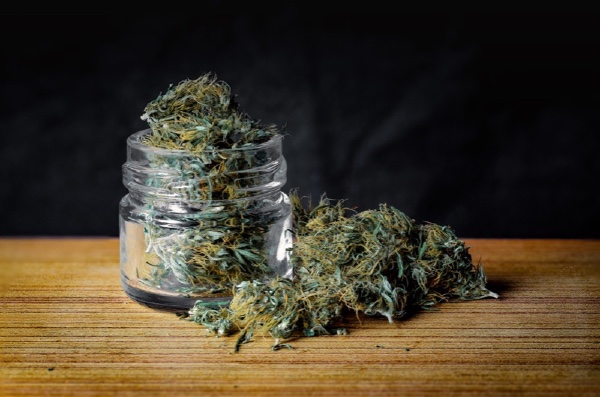
Unlike other states that are decriminalizing and legalizing marijuana and marijuana derivatives, Texas imposes some of the most prohibitive restrictions.
Marijuana in Texas is a complicated issue with continually changing regulations and harsh consequences.
Dealing with the aftermath of a loved one’s arrest on charges related to marijuana can be emotionally draining and difficult. The complexity of the legal system, especially concerning derivatives like THC oil or hemp, may increase confusion.
This guide provides a comprehensive overview of the legal status of marijuana, THC oil, and hemp in Texas. We hope it helps you navigate the complexities of the state’s regulations.
If you have questions and would like to speak with a drug crimes lawyer in South Texas, please contact our firm today. We are standing by ready to help fight for the rights of you or your family.
Is Marijuana Legal in Texas?
The status of marijuana depends on how it is intended to be used. Texas has a complicated legal system controlling its use.
Recreational use of marijuana remains illegal under state laws that prohibit marijuana possession, distribution, and consumption for non-medical purposes in Texas.
Getting caught with non-medical marijuana can result in potential fines, incarceration, and a criminal record. This includes all parts of the marijuana plant, including the flower and seed, as well as derivative products such as oil, hashish, gummies, and other edibles that are not legal hemp.
Limited Medical Marijuana Use Is Legal
Texas has made limited progress toward medical marijuana by passing the Compassionate Use Act in 2015, allowing the use of low-THC cannabis products for specific medical conditions.
This act created the Texas Compassionate Use Program, which is also known as “TCUP”. This legislation, which was expanded in 2019 and 2021, permits the use of low-THC cannabis products for the treatment of specific qualifying medical conditions under the supervision and prescription of a physician.
The Texas Occupations Code specifies the conditions for which patients can use low-THC cannabis products. These conditions include, but are not limited to:
- Epilepsy,
- Seizure disorders,
- Multiple sclerosis,
- Spasticity,
- Amyotrophic lateral sclerosis (ALS),
- Autism,
- Cancer,
- Post-traumatic stress disorder (PTSD), and
- Incurable neurodegenerative diseases.
Individuals should consult with a healthcare professional to determine their eligibility for the program, understand the potential benefits and risks of using medical marijuana, and ensure compliance with Texas laws.
It’s important to note that these products differ from THC oil or other more concentrated marijuana and are subject to stringent regulations.
Medical marijuana must be distributed from an authorized Texas dispensary that distributes prescription marijuana only.
Does Texas Recognize Medical Marijuana Cards from Other States?
Unfortunately, Texas does not have medical marijuana reciprocity. This means that a medical marijuana card issued in another state holds no legal weight in Texas.
Possessing cannabis in Texas, regardless of a medical card from another state, can still lead to an arrest and legal repercussions in the Lone Star State.
Is THC Oil Illegal in Texas?
In Texas, the critical factor influencing the legality of THC oil lies in its classification. Tetrahydrocannabinol (THC), the primary psychoactive compound in marijuana, is classified as a Schedule I controlled substance under the Texas Controlled Substances Act.
Its classification alleges that THC is highly addictive and does not have any recognized medical value. In short, the Texas THC oil law makes it illegal to possess, distribute, or manufacture THC oil in any way that has a THC concentration that exceeds 0.3% Delta-9 THC.
Texas allows the medical use of marijuana for specific medical conditions under the TCUP program, but TCUP doesn’t include non-hemp THC oil at this time. Trace amounts of THC may still be present, potentially leading to unexpected legal repercussions for non-hemp THC oil.
Is THC Oil a Felony in Texas?
Texas categorizes drugs into penalty groups based on factors such as the substance type and amount. THC oil falls under Penalty Group 2, which includes substances carrying harsh legal penalties for unlawful possession or distribution due to the assertion that they present a high potential for abuse to the public.
Depending on the quantity involved and the specific circumstances of the case, possession, distribution, or trafficking of THC oil can result in felony charges.
Since vape pens contain THC oil, possession of a vape pen with non-hemp THC oil can result in felony charges as well. Here’s a breakdown of the potential penalties for possessing THC oil:
- Possession of less than 1 gram is a state jail felony, punishable by incarceration between six months and two years and up to a $10,000 fine.
- Possession of 1 to 4 grams is a third-degree felony punishable by 2 – 10 years in prison and a fine of up to $10,000.
- Possession of more than 4 grams is a second-degree felony, resulting in up to 20 years in prison and a $10,000 fine.
Remember, these are general guidelines, and the specific penalties can vary based on individual circumstances. It’s crucial to consult with a qualified attorney specializing in marijuana defense to understand Texas marijuana laws as they apply to your specific case.
Is Hemp Legal in Texas?
While THC oil is subject to legal restrictions in Texas, the situation with hemp paints a more complex picture. The key difference lies in the THC content.
Both hemp and marijuana originate from the same plant species—Cannabis sativa—but their THC levels differ significantly. Hemp contains a minimal amount of THC (less than 0.3% by dry weight), while marijuana typically contains much higher THC concentrations.
Under the Texas Hemp Farming Act, hemp products complying with the federal 0.3% Delta-9 THC limit are legal to cultivate, possess, and sell within the state.
This opens up opportunities for various industries, including textile production, construction materials, and food and personal care products containing hemp and its derivatives, such as CBD oil.
While the legalization of hemp offers new possibilities, it’s crucial to exercise caution due to the strict THC threshold. Unintentionally exceeding the legal THC limit can result in significant legal consequences similar to those associated with THC oil.
The Importance of Legal Representation
If you or your loved one is facing legal trouble related to THC oil, marijuana, or other controlled substances, seeking qualified legal representation is crucial.
An experienced lawyer with the nuances of Texas Law can assess the case, provide essential guidance through the complexities of the legal system, explore defense strategies, and help protect the rights of the accused.
We Provide a Staunch Defense to Marijuana Charges
At Austin Hagee Law Firm, we are familiar with the subtleties of Texas law surrounding marijuana and related products. Our firm is committed to representing clients with compassion and skill in the courtroom.
We have a proven track record of success defending individuals facing drug and other criminal charges. Our experienced attorneys will tirelessly ensure your loved one receives fair treatment and a strong defense with our legal team.
Contact us today to schedule a consultation. We are here to help you navigate this challenging time.
